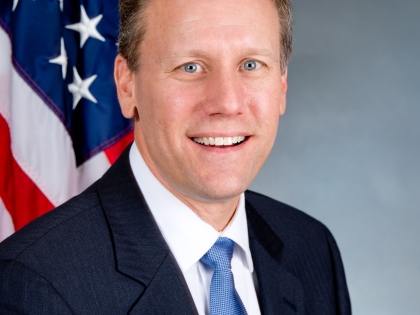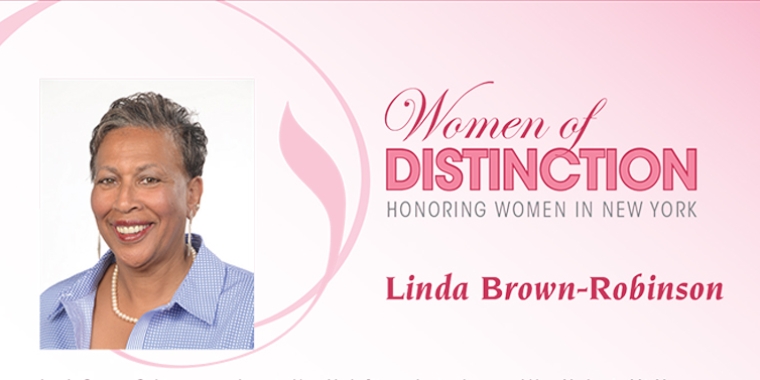
Senator Valesky, Independent Democratic Conference Release Comprehensive Plan to Overhaul Campaign Finance Laws
David J. Valesky
April 16, 2013
State Senator David J. Valesky (D-Oneida) and the Independent Democratic Conference (IDC) proposed sweeping reforms to New York State’s current campaign finance laws. The IDC’s plan would introduce a comprehensive system of public campaign financing under which all qualifying candidates would be eligible to receive public matching funds. Candidates opting not to participate in the public financing system would be required to participate in a completely overhauled campaign finance system.
“This package represents the most aggressive campaign finance overhaul proposal in the state. Recent events have provided all legislators with an opportunity to redouble our efforts to build the best government possible for our constituents and the state,” Senator Valesky said.
The IDC’s plan would (1) impose a $2,600 contribution limit for all state campaigns, regardless of a candidate’s participation in the public financing system (2) ban all corporate contributions to candidate and party committees, (3) eliminate party “housekeeping” accounts, which are not currently subject to any contribution limits, (4) impose a $2,600 cap on transfers between party and candidate committees in order to prevent parties and candidates from circumventing the intent of statewide contribution limits, (5) create a statewide “doing business” database to track individuals who have business before the state and imposing stricter limits on the amount these individuals can contribute.
Contributions made by individuals in the “doing business” database would not be eligible for public matching funds. The IDC’s proposal would also repeal the so-called Wilson-Pakula provision from state election law, which currently enables party chairmen to singularly determine their party’s candidate for an election ballot.
IDC Leader Jeff Klein said, “It’s clear that the time has come for real change to our state’s campaign finance laws. I believe that our proposals today not only set the high watermark for reform—they completely change the debate. Public financing is an important part of any campaign finance reform plan. But unless we fundamentally change the campaign finance system for all candidates, we will not be giving voters the type of change that they deserve. This is how we change Albany—anything less is simply a distraction.”
Dick Dadey, Executive Director, Citizens Union, said, “Senator Klein and the IDC’s campaign finance reform proposal is comprehensive with a capital C. It leads with public financing but also touches all the other needed bases for the program to succeed. By doing so, he puts on the table contribution limits to party and housekeeping committees, pay-to-play regulations, disclosure of independent expenditures and contribution bundlers, and with it, an understanding that these holes need to be plugged so that money doesn’t leak back into our campaigns. His legislation is a welcome addition to the public discussion and will help us move forward to remove the corrosive influence of money in our elections.”
Barbara Bartoletti, Legislative Director of the League of Women Voters of NYS said, “The LWVNYS believes this comprehensive approach to campaign finance reform could significantly reduce the influence of special interest money in state politics and change the culture in Albany."
The IDC’s legislative package will propose sweeping changes to New York State’s current campaign laws. These changes include:
- Lowering contribution limits to $2,600 for all candidates running for State Office including the Governor and the Lieutenant Governor, the Comptroller, the Attorney General, the State Senate and the State Assembly. This limit applies to the combined total of contributions made for a primary and a general election.
- Banning corporate campaign contributions entirely.
- Eliminating transfers between state parties and individual political committees.
- Capping contributions to state and county party committees at $10,000 per donor.
- Repealing the so-called Wilson-Pakula provision from State Election Law.
- Eliminating “housekeeping” or “soft money” accounts. These accounts are currently used to finance party or statewide campaign related costs such as campaign overhead, office space, and utilities. Under current law, there are no limits to the dollar amount of contributions that these committees may receive. Under the IDC’s proposal, these accounts would be eliminated, thereby requiring all such costs to be financed directly from campaign accounts, which are subject to strict contribution limits.
- Imposing increased disclosure requirements of independent expenditures.
This legislation also provides all eligible candidates with an opportunity to participate in a public campaign finance system for all candidates for statewide office and for candidates for the State Senate and the State Assembly. Elements of the IDC’s public campaign finance program will include:
- A six to one match for each $250 raised from an individual contributor. In other words, for every $250 raised by a candidate, $1,500 would be given as a match. The match would only be allowed for contributions from individuals. Contributions donated to the candidate from political committees, PACs or other entities would not be matched.
- Imposes a minimum threshold for contributions that must be raised by a primary or general election candidate to qualify for the 6-1 public match.
- Governor: Must raise $650,000 in matchable contributions from at least 6,500 individual donors.
- LG (primary only), Comptroller, AG: Must raise $200,000 in matchable contributions from at least 2,000 individual donors.
- State Senate: Must raise $20,000 in matchable contributions from at least 200 individual donors, including at least $12,500 from at least 125 donors residing in the state senate district
- Assembly: Must collect at least $10,000 in matchable contributions from at least 100 individual donors, including at least $5,000 from at least 50 residents of the Assembly district.
- Unless otherwise specified, all matchable contributions must be made in amounts up to $250 by individual NYS residents of voting age who are US citizens.
- Limits on the amount of public funds expended for each candidate for a primary are as follows:
- Governor: $5.5 million
- Lt. Governor, Attorney General and State Comptroller: $2.75 million
- State Senate: $825,000
- Assembly: $412,500
- Limits on the amount of public funds expended for each candidate for a general or special election are as follows:
- Governor: $8.25 million
- Attorney General and Comptroller: $4.125 million
- State Senate: $825,000
- Assembly: $412,500
- A requirement for participating candidates to adhere to the following expenditure caps:
- Governor: $10 million for a primary and $15 million for a general election
- Lt. Governor: $5 million for a primary
- State Comptroller and for the State Attorney General: $5 million for a primary and $7.5 million for a general election
- State Senate: $1.5 million for a primary and $1.5 million for a general/special election
- Assembly: $750,000 for a primary and $750,000 for a general/special election
- Required disclosure of bundlers and intermediaries in the gathering of campaign contributions
- The creation of a “doing business” database similar to that of New York City. Doing business contribution limits for individuals will be set at $260.00 dollars (10% of the individual contribution limit). These “ doing business” contribution limits are for the primary and general elections combined. These “doing business” contributions are not eligible for public matching funds.
- Matching funds would be derived from a 10% surcharge on State litigation, a campaign finance tax check off, and surplus monies from the unclaimed property fund.
- Civil penalties of up to $5,000 for failure to make required campaign finance filings, and up to $10,000 for any person or authorized committee knowingly and intentionally violating other public financing provisions.
- Criminal prosecutions by the State Attorney General. Penalties may include repayment of all matching funds received.
- Knowingly and willfully failing to make required filings and other violations of the public financing provisions are misdemeanors punishable by a fine of up to $10,000, as is the knowing and willful making or acceptance of a contribution that exceeds the legal maximum.
- False statements, including the material omission of information required to be provided, will be punishable as a Class E felony.
- Enforcement of the IDC Campaign Finance Reform Proposal will be administered by a newly created Campaign Finance Board. This will be a new unit within the State Board of Elections charged with the oversight and enforcement under the new IDC public financing proposal. This NYS CFB will be fully staffed in order to effectively oversee and enforce these new provisions as well as those provisions which do not apply to participation in public financing.
- The IDC’s proposed changes to the current campaign finance system would take effect immediately. Candidates for State Comptroller would be eligible to participate in the public financing system in 2014, state legislative candidates in 2014 and all statewide candidate in 2018.
Share this Article or Press Release
Newsroom
Go to NewsroomLinda Brown-Robinson
April 27, 2018


